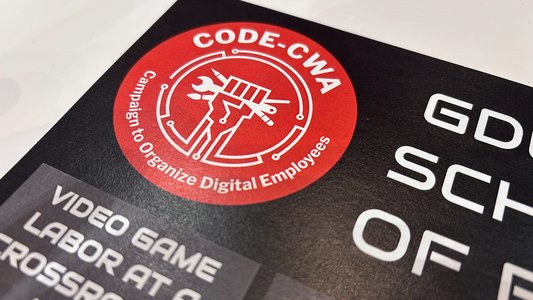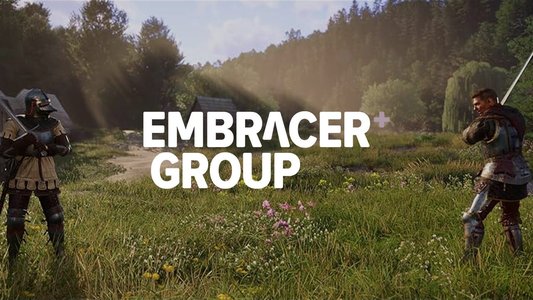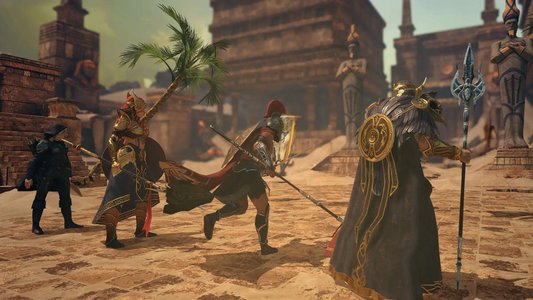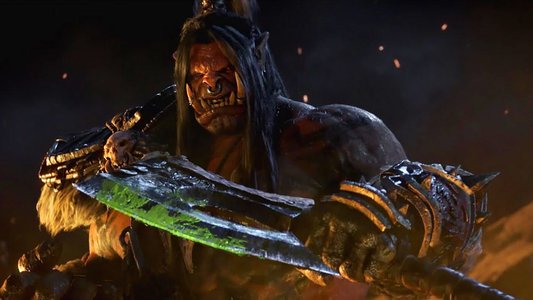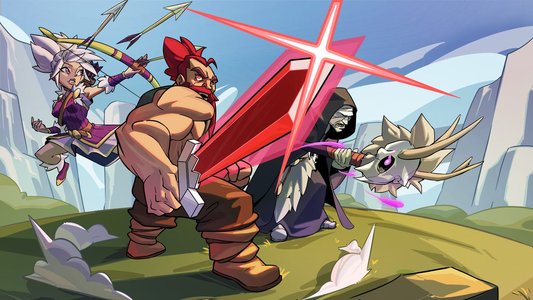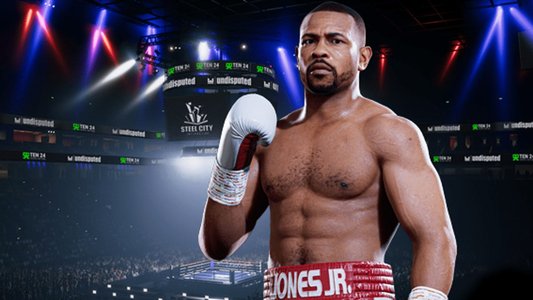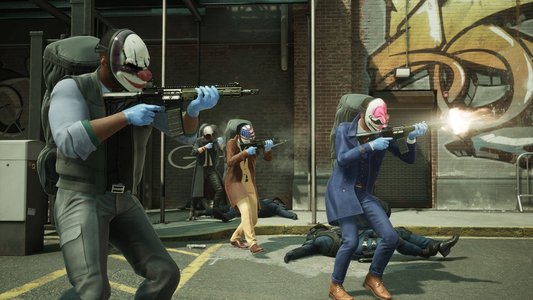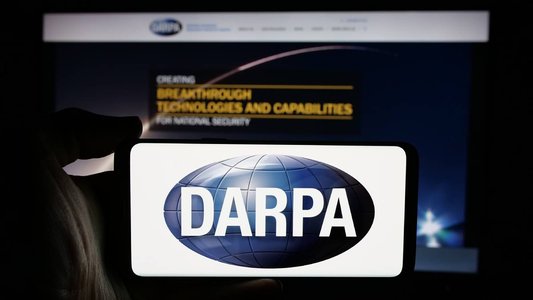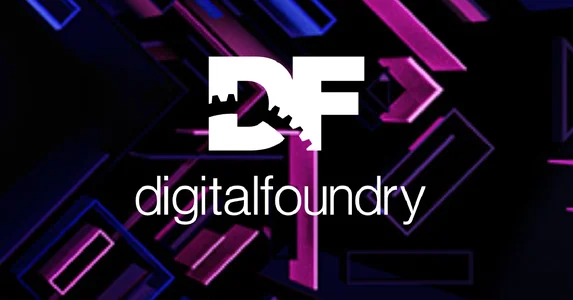It shouldn't be so hard for developers to receive credit for their work. Industry activists have been campaigning for years to create standardized crediting practices but the problem persists. Many developers still aren't being recognized for their contributions and it is a debilitating issue. It's not just a case of someone not seeing their name in lights. It's a practice that can hamper careers—especially those of industry newcomers who might be asked to prove they've worked on a shipped game.
Localization and translation specialist Tamara Morales recently told Game Developer that freelancers, too, rely heavily on credits to bring in more work and show their experience. It's like a resume. Proper crediting is crucial for game workers that have been pushed to the margins, like contract workers or external teams.
Unions could help standardize the crediting process and guarantee compliance.
The struggle for developers to get proper recognition for their work in the industry has been well-documented. Often, individuals working for external support teams, like localization or quality assurance, will be omitted. Sometimes, studios will leave out the names of people who departed ahead of launch. Improper crediting doesn't always mean a person can't list a project on their resume, but it's—at best—unfair to the developers who worked on the game and aren't credited and, at worst, actively hampering careers. The impact varies from person to person and studio to studio—there’s a ton of inconsistency—but the problem remains pervasive.
Union contracts can deliver 'tangible, positive change across the industry'
Nazih Fares, the vice chair of the International Game Developers Association's (IGDA) game credits special interest group, told Game Developer that while working as a public relations contractor for major game companies, they'd been left out of the credits for more than 50 games they supported. Their first game credit for Metal Gear Solid 5 was a 'special thanks' at the end of the roll call—something that didn't accurately represent the scope of their contributions.
When they began specifically asking for credits, they were told the studio that had solicited their services didn't include external developers in their credits. "It was frustrating to be in that situation, and I knew that I wasn't the only one," Fares said. "It wasn't just me."
The IGDA's game credits group published a lengthy paper on the best practices for game crediting in 2023, which includes standards that define an "inclusive" crediting philosophy. The group even built tools in Unreal Engine to streamline the task of importing credits into a game.
Industry consultant Tarja Porkka-Kontturi told us several studios have adopted those IGDA guidelines, but that "widespace implementation is still absolutely lacking."
The problem is that the IGDA can't force companies to implement a standardized process—but contracts can. "I firmly believe that if unions and developers collaborated to embed fair crediting practices—such as the ones we've outlined in the IGDA Game Credits Guidelines—into collective agreements, it would bring tangible, positive change across the industry, globally," Porkka-Kontturi said. "As mentioned, this kind of inclusion in union contracts would not only strengthen the position of workers but also give studios a clear, standardized process to follow."
Freelance writer and narrative designer Anna C. Webster also suggested unions can provide a pathway to standardization. "[Credits] are critical," she said. "Being properly credited on a title is essential to our individual careers as workers, and also just general fairness. Being able to say, 'Hey, I worked on this,' is important to show the work you did and not undercut labor in any way."
Webster is a member of the United Video Game Workers-Communications Workers of America's (UVW-CWA) organizing committee and the interim chair of the freelancing and contractors issues' committee. She said the standardization of video game credits is something the freelancing committee is particularly interested in. Hollywood unions, like the Writers Guild of America or the Producers Guild, have built out and enforced crediting rules. The video game industry doesn't have any overarching bodies to do that—so companies are still able to follow their own whims.
Sega and ZeniMax unions successfully bargained for standardized crediting practices
The Communications Workers of America told Game Developer that several video game industry unions, like Sega of America and ZeniMax Workers United, have already bargained for standardized credits in their contracts. Sega of America's contract, for instance, requires the company to credit all workers that contribute to its games—including "early QA testers."
ZeniMax Workers United has two pages dedicated to crediting practices in its signed contract agreement. It sets out the following attribution guidelines:
a) The Employer will credit all bargaining unit employees who are assigned (or ancillary) to the title and are employed 90 calendar days before a project’s full public release date. Anyone not employed 90 days minimum before the projected full release date will appear in “Special Thanks”, “Additional Credits” or some other equitable designation.
b) Bargaining unit employees must work on the title for at least 30 calendar days before the credit lock date. Contributors below this threshold will appear in “Special Thanks”, “Additional Credits” or some other equitable designation.
c) Bargaining unit employees will be credited by their lived name (first and last) and their role or nature of work at the time credits are created. In the event a bargaining unit employee updates their lived name with Human Resources, the Employer shall then update the publicly accessible list of credits, if available. Changes or updates to in-game credits will be at Management’s discretion.
d) Credits shall be updated with credit given to those who meet these criteria for additional major releases related to the game (large updates, DLC, etc).
The contract also has a section that lays out the visibility of credits, too. The credits have to be made available to anyone who plays the game, regardless of whether or not they've completed it. There's even a process that outlines how the company must be informed if mistakes are made, and if they want to change how their name appears. (The contract doesn't have any process—aside from being "at the employer’s discretion"—on how people who no longer work there can have theirs changed).
Unions, then, have both collective worker power and legal strength to push back on a multitude of issues, including crediting problems. The union has resources that an individual may not, meaning workers don't simply have to trust an internal policy. They can also garner widespread cross-industry support. UVW-CWA, unlike the unions under Sega of America and ZeniMax, is a direct-join union. That means any game worker can join its ranks, regardless of where they work or whether they’re a freelance or contract worker.
UVW-CWA currently has more than 500 members across the industry in North America and Canada. It works differently in that there isn't a contract between the union and specific companies. Instead, its power comes from the collective voice of members.
The freelancing group under UVW-CWA is looking to create contract standards to help individual workers negotiate crediting terms into their contracts with companies. Webster said the union hasn't nailed down exact language just yet, but explained it could be useful, for instance, to ensure anybody who worked on a game for more than 30 days must be included in the credits.
"Game developers and publishers could work with unions in drafting a clause in the contract stating that all external collaborators are credited no matter how big or small that collaboration is," Morales added. Crucially, those clauses could be used to hold companies accountable if people are not properly credited. Morales said organizations like ATRAE are working to help people receive proper credits. That includes helping developers contact studios to make them aware of crediting issues in the hopes of delivering a fix.
Studios don't always comply, but with contracts in hand—or a mass of worker support—that could change.

